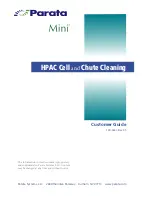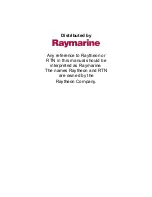
29
Revision date: 09.20.21
11291950
Operational and Maintenance Information
General Cleaning and Maintenance Instructions
For optimal performance and to increase yields, check and clean the system
periodically. Time between maintenance and cleaning depends on the
growing environment and specific use of the system. Complete the following
steps as needed to ensure that your system is working properly.
1. Inspect the frame and mounting screws to ensure they are tight and
frame is not damaged.
2. Disconnect the main power supply to turn off all pumps. Remove the
reservoir cover and inspect the inside of the reservoir. Reservoir should
be cleaned each time the nutrient solution is changed. Keep the reservoir
and porthole covers in place during operation to prevent light from
entering the reservoir.
3. Check all plumbing and main supply connections to ensure that all are
operating as designed. No leaks.
4. Replace worn or cracked supply tubes as needed.
5. Clean the drain tube if needed. Remove the end plugs and inspect the
inside of the tube. Clean the drain tube by pulling or pushing a brush or
cloth through the it. Rinse with clean water.
NOTE:
Do not allow debris from the drain tube to contaminate the
contents of the reservoir. Remove extension tube before cleaning.
6. With the pump off, disassemble the filter and clean the screen and
housing. Reassemble for use. See procedure in the right column.
For best results, clean the filter screen regularly or when the flow rate
changes unexpectedly. Complete these steps to clean the filter screen.
1. Shutoff the power to the
nutrient pump. Open the valve
on the filter to drain into a
bucket.
2. Grip the filter housing and the
main supply line and unscrew
the housing. Do not apply
force to the filter fittings.
Clean the Filter Screen and Housing
3. Remove the screen from the
housing. Using clean water,
rinse the housing and the
screen.
4. Insert the screen back into
the housing, reassemble the
filter, and
close the valve.
5. Turn on the pump and check
the flow from the supply tubes
to each channel.
6. Check filter and fittings for
leaks.
Flow
Flow
ATTENTION:
Actual system may differ from
the example shown. Photos are provided for
filter cleaning only.
They do not shown actual
system.













































